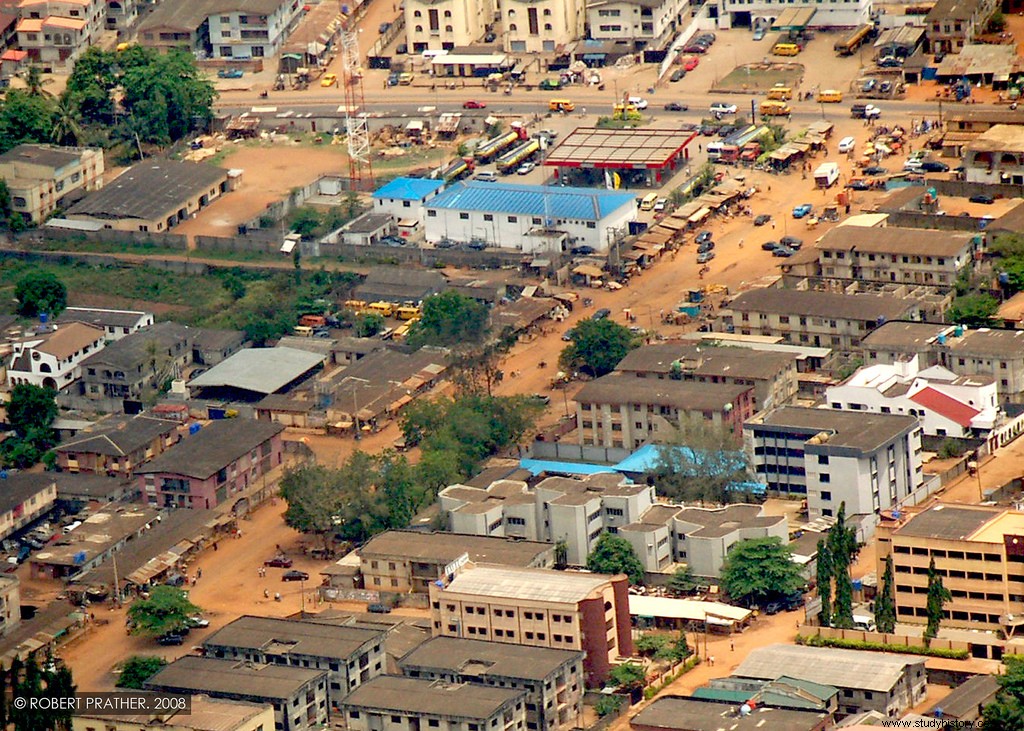Nigerian writer, Flora Nwapa (1931 – 1993) was the first Nigerian novelist published in London and one of the first African publishers; she has been dubbed "the mother of modern African literature".
An educated childhood
Florence Nwanzuruahu Nkiru Nwapa, who will be known as Flora Nwapa, was born on January 13, 1931 in Oguta in southern Nigeria and near the Niger Delta. The country was then a British colony since 1914, after being placed under a protectorate in 1900. Daughter of Martha Nwapa, theater teacher, and Christopher Ijeoma, agent of the United Africa Company (a British trading company), Flora is the eldest of six children.

Flora goes to school in Oguta, Port Harcourt and Lagos before pursuing university studies at the University of Ibadan, in the southwest of the country. A graduate in literature, she continued her career in Scotland and obtained a diploma in education from the University of Edinburgh in 1958, at the age of 27. A year later, Flora returned to Nigeria to work in education. After a first job as an education officer in Calabar, in the south-east of the country, she was hired as a teacher in a school in Enugu, a little further inland, to teach English and geography. Along with her job, she also performs state duties, as deputy clerk.
And above all, she begins to write.
Efuru
From the beginning of the 1960s, when Nigeria had just gained independence, Flora Nwapa worked on her writings. In 1962, she sent her first novel, Efuru , to Nigerian writer Chinua Achebe who published the masterpiece The World Is Collapsing four years earlier . The book tells the story of a strong and independent Igbo woman - a people from southeastern Nigeria - and her unhappy marriages; it extensively depicts Igbo culture and traditions, from the place of women in a patriarchal society to motherhood or sterility, including traditional ceremonies.
Convinced by the novel, Chinua Achebe encourages Flora to send it to a London publishing house and finances the shipment himself. In 1966, the Heinemann editions published Efuru in their African Writers Series collection; it is the first novel in the series to be written by a woman. Flora, she is the first Nigerian novelist published in London and paves the way for the following generations.
Editor
When the Biafra war, which ravaged the country between 1967 and 1970, broke out, Flora Nwapa left Lagos with her family. Married twice, she has three children. At the end of the civil war, she was appointed minister of health in the East Central State, in charge in particular of finding a home for two thousand orphans of the conflict. Alongside her new political activities, Flora continues to write and publishes several books in which she continues to discuss Nigerian cultures and the place of women. After Idu in 1970, the book Never Again ("Never Again", 1975) looks back on the war years and highlights the importance of women in Nigerian society.
In 1974, Flora founded the first major publishing house created and owned by an African woman, Tana Press . She publishes her own writings, novels, poems, short stories, stories for adults and children. A few years later, she created the publishing house Flora Nwapa Company , publishing her works like those of other African women writers. With the objective "to inform and educate women around the world - especially feminists - about the role of women in Nigeria, their economic independence, their relationships with their husbands and children, their traditional beliefs and their status in the community” , it mainly targets a female audience. She herself, after years of distrust of feminism, which she perceives as hostile to men, inclines towards an egalitarian society and claims to be womanist (English) rather than feminist.
Flora Nwapa, "the mother of modern African literature" died of pneumonia in October 1993 at the age of 62.
